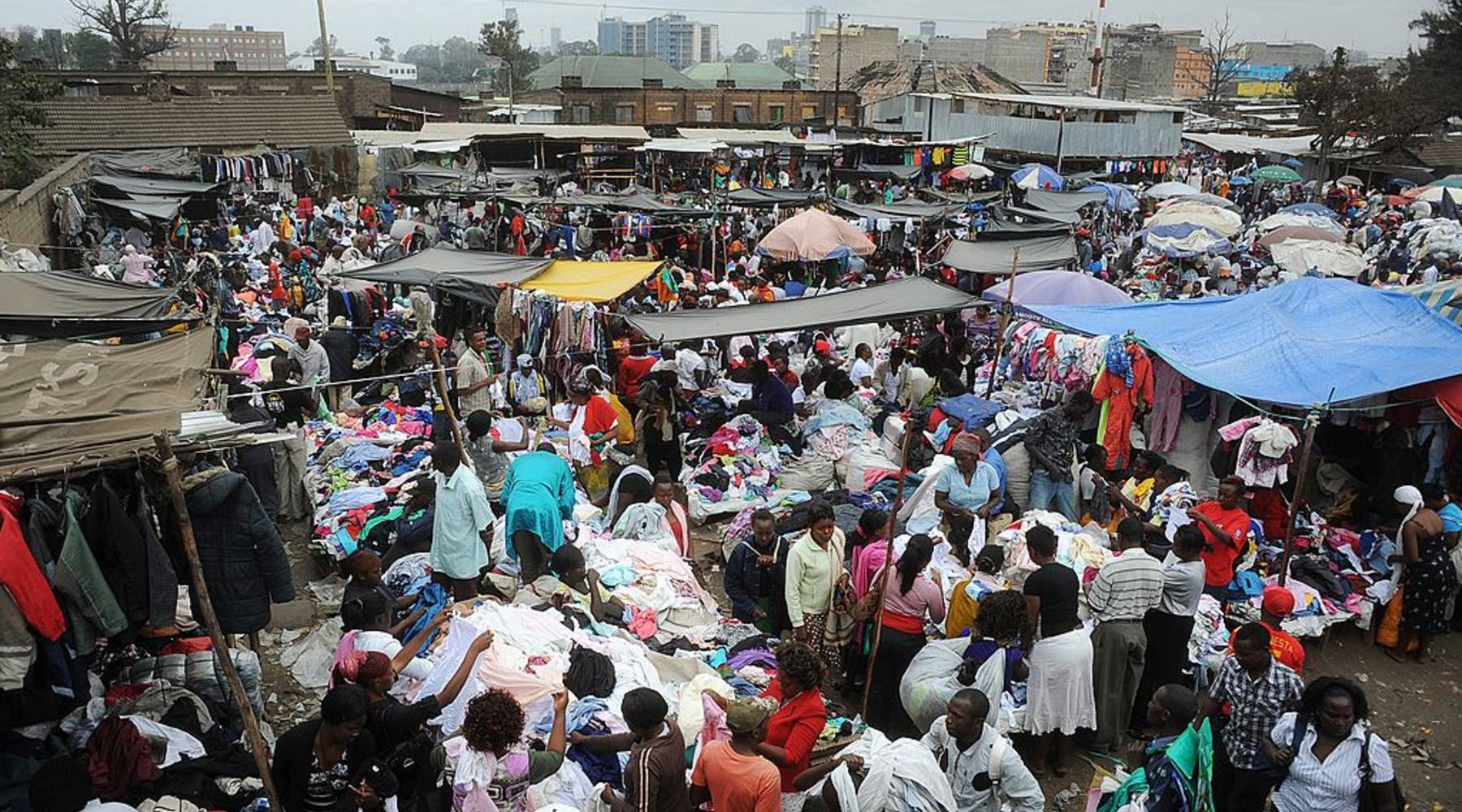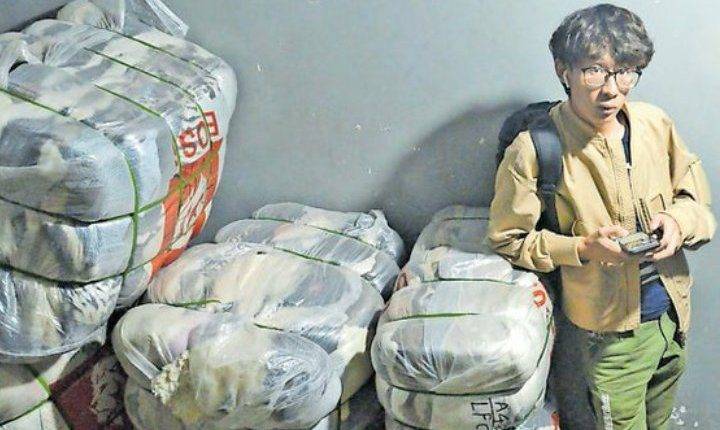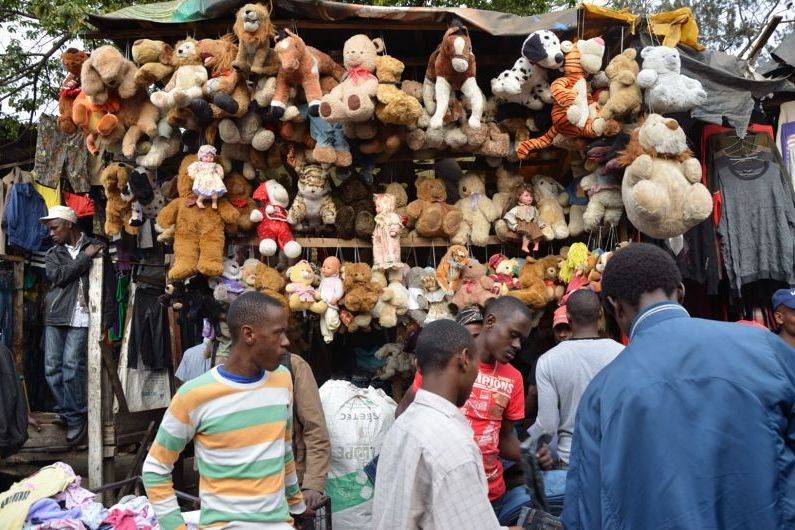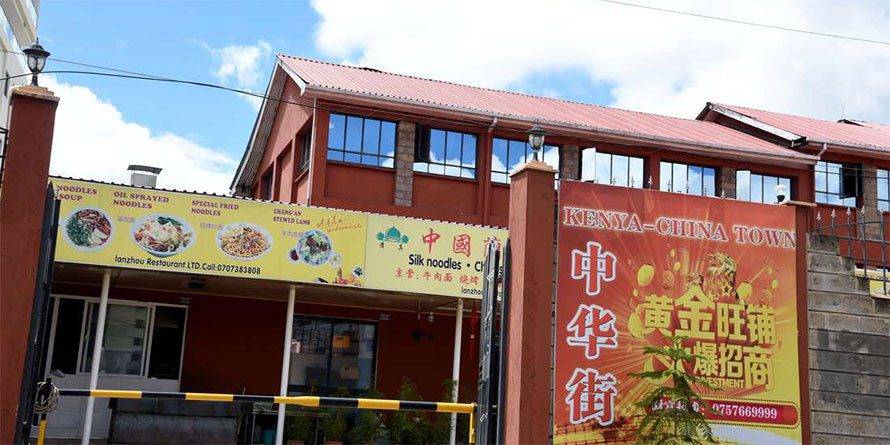5000 Kenyans Out Of Business And Counting – How The Chinese Have Infiltrated The ‘Mitumba’ Business

A visitor going to Nairobi’s Kilimani area will be confused for a minute whether they just landed in Beijing China or Nairobi. The once quiet and lavish hood previously occupied by middle-class expats has now become a China Town with stalls all overwritten in Chinese.
Day-in-day-out the Chinese continue to throng Nairobi, also known as the city of cool waters. Most of them are not learned and with them, they bring unskilled labour which is taking up jobs that locals can handle. They have occupied malls in Nairobi’s CBD where they sell weave and wigs, mobile phones. Yes! Don’t be surprised to see them selling ‘mutura’ and ‘mahindi choma’ on the streets.
While a significant number of them have brought tangible investments needed to grow the economy, most of them are in Kenya trying to earn a living. The growing number of Chinese nationals has led Kenyans to question the criteria these people use to enter Kenya.

Notably, a significant number of them are very aggressive and are already making profits in their businesses. Some of them have even mastered the Kiswahili language and speak it fluently!
They have their restaurants at strategic positions in Nairobi, they now also have their own herbal clinics. They literally have their small China home in Kenya’s capital. Unknown to many, some of these Chinese have shops and at the same time, they have jobs. Because of their busy schedule, they open their shops in the afternoons after finishing their day’s work.
The government has been forced to deport a number of Chinese nationals who were doing businesses without work permits. Others who were found engaging in prostitution were also sent home. It has become so easy for them to access the country as a number of others just spend their days and night gambling at Casinos.
Chinese Traders Operating in Gikomba

Local traders operating in Nairobi’s Gikomba market have been forced to severally shout for help as Chinese businessmen continue to trickle in large numbers to open shops selling new imported clothes from China at very low prices, giving them competition.
Located less than 3 kilometres from Nairobi’s busy CBD, Gikomba is East Africa’s biggest second-hand market. The market which was opened in 1952 houses over 40, 000 traders and is a source major source of income for thousands of Kenyans who import second-hand goods and sell it to the locals.
Shoppers in Nairobi’s Gikomba market can get Tommy Hilfiger jeans, Burberry jacket or any other designer outfits for just a fraction of the price in New York’s Fifth Avenue. The market has quite a lot to offer to its customers who flock in thousands daily to select their clothes.
Some of the Chinese traders in Gikomba entered Kenya when the Standard Gauge Railway was being built, others came to construct roads and since then they have become permanent fixtures in the country. Others found their way to Nairobi, nobody knows how. They have liaised and opened businesses more so in the construction sector and road work companies.
Kenya has been borrowing huge loans from China to build roads and upgrade infrastructure. According to the Institute of Economic Affairs (IEA) who shared an Analysis of borrowing trends in Kenya. ” Kenya is heavily indebted to China and the lender could take critical measures in case the country defaults.”

The inundation of these Chinese nationals in Kenya may be as a result of the huge debt Kenya is expected to pay back the Chinese government. The Kenyan government has remained mum on the issue of Chinese flooding the country to do business despite local traders launching numerous complaints. The loud silence is presumed to be as a result of the massive debt that has accrued over time.
The Chinese businessmen are having it easy as they have easy access to Kenya’s Visa. All they need is a Visa and flight ticket to open shops and prosper in Kenya. For a Kenyan citizen to access the Chinese market as a trader however, they have to toil. This is because they will need an invitation letter, which is like impossible to get, a hotel booking, flight booking, letter from where they intend to pay a visit in their trip as well as invoices for previous purchases made.
The Uhuru Kenyatta-led government has failed to introduce policies that will protect local business men from being exploited by foreign businesses.

The entry of Chinese traders into Gikomba market has caused massive losses for local traders.
About 5,000 small-scale traders have closed shops in the past one year due to the “Chinese invasion,” said the Kenya World Wide Importers and Traders Association (KWITA).
Kenya’s small traders and importers have severally launched protests against the influx of these Chinese into Nairobi’s retail scene. The intensifying conflict between Kenyan traders and their Chinese counterparts may soon become a major test for Kenya-China diplomatic relations.
“If at any point a Chinese person wishes to invest with Kenya, our government should have policies that protect local or foreign partnerships. Not on the basis of marriage or financial capacity but a mutually beneficial relationship between the Kenyan and Chinese person,” said KWITA Chairman Ben Mutahi.
Kenya’s Debt To China
Kenya holds third highest Chinese debt in Africa and as per December 2018, the debt had accumulated to USD 8.78 Bn. Recently president Kenyatta was denied a USD 3.63 Bn loan by the Chinese government which was meant for expanding the SGR to Kisumu across Rift Valley.

These funds borrowed from the Chinese may have been borrowed for genuine purposes, mainly to bring development. The Chinese in Kenya have done a commendable job in regards to infrastructure upgrade and the work they do is indeed quality and worth the price. The capital inflows from the Chinese have fostered economic development. Data sourced from United Nations Conference on Trade and Development (UNCTAD), indicates that Kenya, which received USD 1.3 Bn FDI from China between 2011 and 2017, the highest in East Africa.
Like it has been said severally, Chinese have brought numerous opportunities to Africa. To a big extent the statement is true. A delve into the African market however depicts a different scenario. These Chinese have opened numerous small and medium enterprises (SMEs) and are killing it big at the expense of locals like is the case in Gikomba market.
Owed to the fact that they are better placed and have it easy when it comes to importing, they do so and sell their products cheaply attracting customers from all over. Kenyan traders are then left without clients and end up losing millions.
The truth is many Kenyan ‘mituma sellers’ or you can call them second-hand clothes traders have closed shops due to competition from Chinese traders who have stalls in Gikomba. Many of them are struggling to put food on their tables and the government has failed to address the issue.
In the year 2018 imports rose 31.3 percent with traders spending USD 126 Mn but with the current situation, the trend may change if the government fails to intervene. This is because most local traders are opting out of the business due to frustration as they are no longer making profits.
Featured Image Courtesy: Marketplace